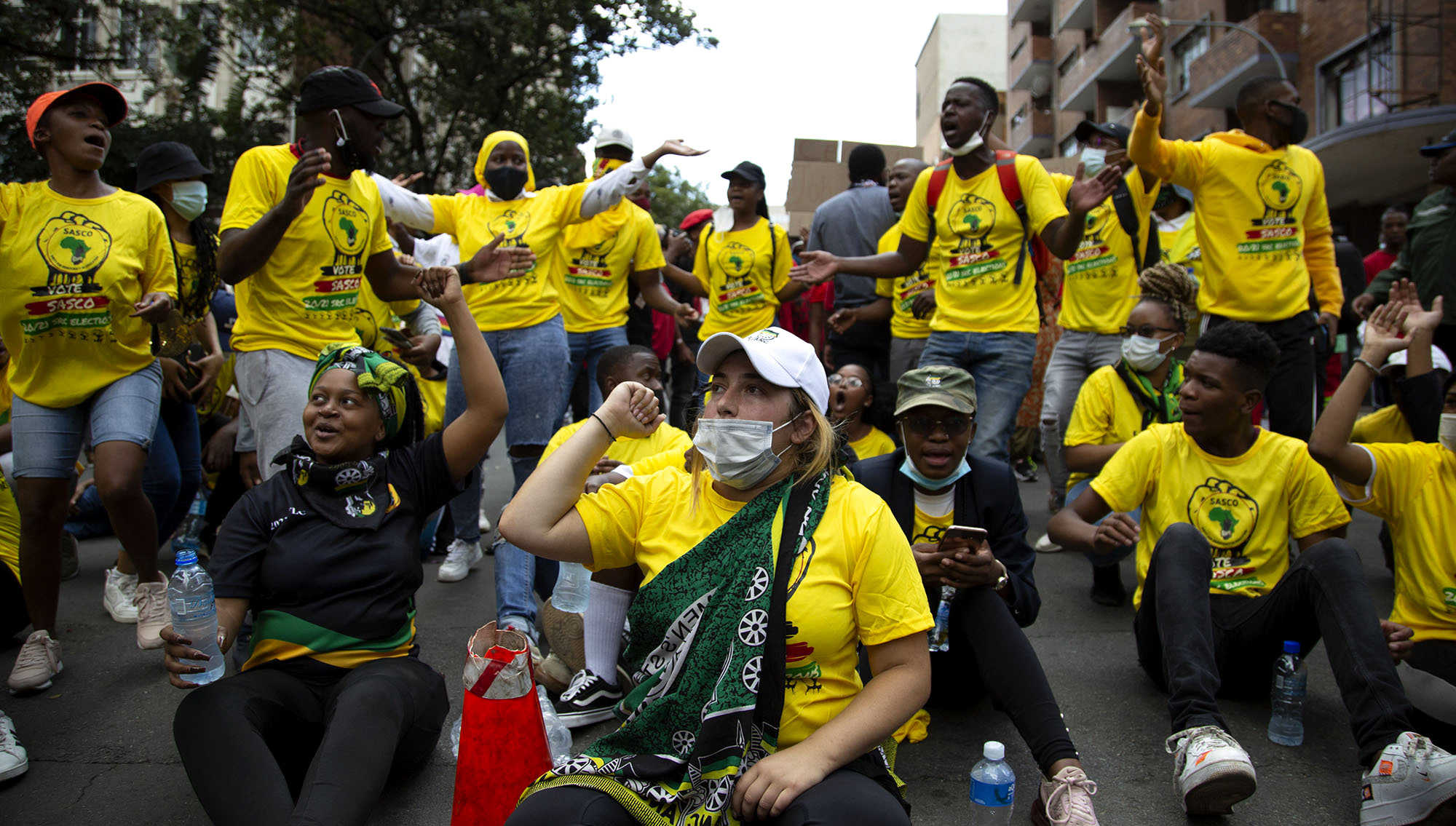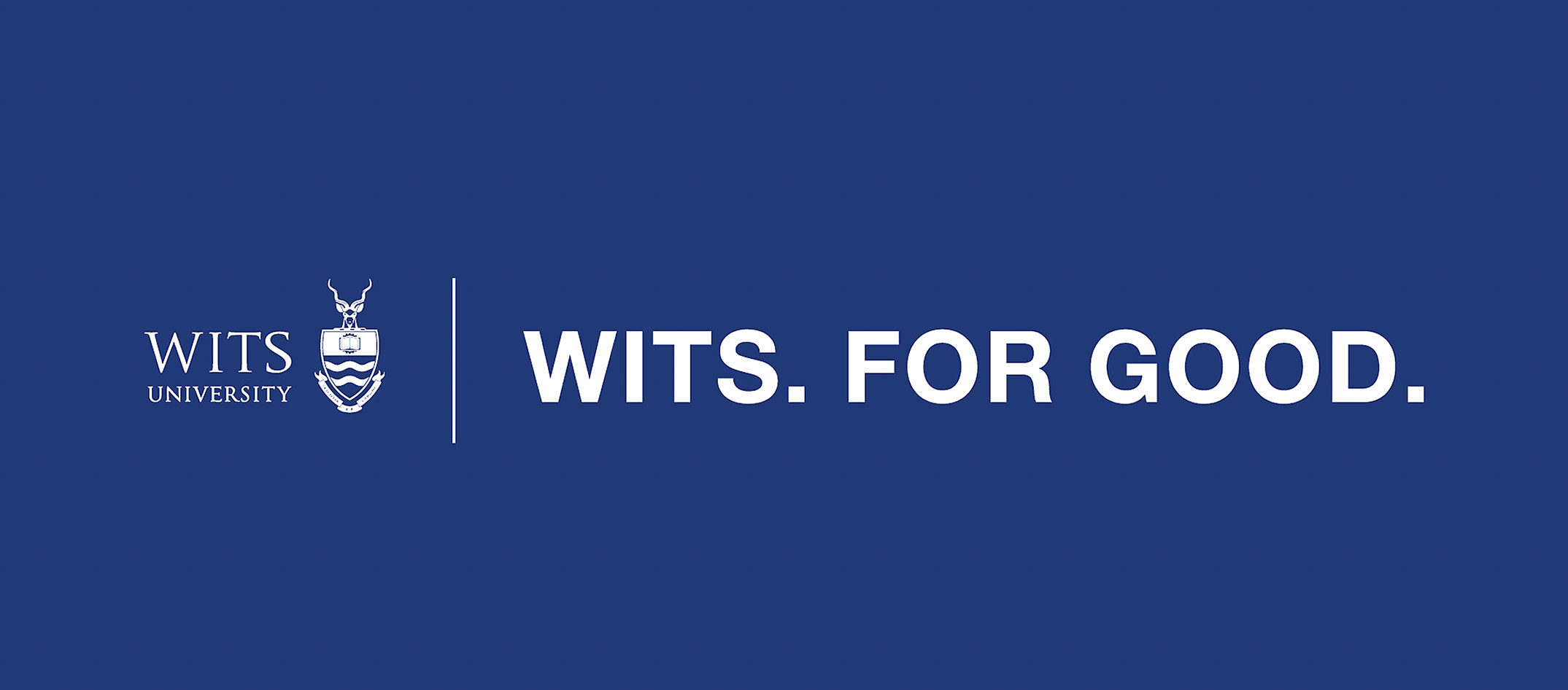Wits University is a public institution. When it comes to its new slogan, “Wits. For Good”, the “good” should be that of the public, however that may be defined.
But it has become clear that the “good” is not for the public at all, but for those of its students who fit easily within registration parameters; who have easy access to all that is required for online learning; those who are willing to ignore the plight of those at the margins of what are considered “neoliberal universities”.
And that leaves those of us in the institution caught between trying to ignore the current protests for registration and access to education, and continue as “normal”, as the university is urging us to do (the university has taken a “business as usual” approach), or acknowledge the fact that someone was killed by the police; that students have been shot; that students who have already met the universities stringent academic requirements are protesting for access to this institution.
Wits is one of the 26 public higher education institutions which are known as universities. The dictionary explains the word ‘public’ as “of or concerning the people as a whole”; further it is for the “ordinary people in general; the community”. With these two senses of the university as a public institution, we can add the word ‘good’ after ‘public’ to have the phrase, ‘public good’.
For the public good means “a commodity or service that is provided without profit to all members of a society, either by the government or by a private individual or organisation”; to “the benefit or well-being of the public”.
Thus, the idea of Wits University as being for the public good in the two senses of “public” on the one hand, and of “public good” on the other, is what we have in our minds when we think of the public universities.
A deeper look at what “public” means is that Wits, like the other 25 public universities, are meant to serve the public, i.e, contribute to the common good of all students – rich, poor, middle class and others.
 Students protesting in Braamfontein, Johannesburg. (Photo: Felix Dlangamandla)
Students protesting in Braamfontein, Johannesburg. (Photo: Felix Dlangamandla)
In his book, Bounds of Democracy (2009), Wally Morrow asks the question: What is the function of higher education? If one interprets Morrow’s question in practical (or empirical) terms, according to Kotzee and Martin (writing in the Journal of Philosophy of Education in 2013), three accounts of the role of the university (including Wits) would suffice:
- Ensuring social benefits through intellectual advancement, that is, identifying and educating future scientists, leaders, artists and intellectuals who will serve society (narrow social goods conception);
- Fair distribution of life chances (distributive conception); and
- The advancement of scholarly knowledge (knowledge conception).
Against this background, Wits University cannot afford to be part of the greatest sale in the history of post-apartheid South Africa in which the state privatises that which is public, i.e. the right to quality education for all.
The Constitution of the Republic of South Africa, in its founding provisions, reads:
“[T]here is a common South African citizenship… All citizens are... equally entitled to the rights, privileges and benefits of citizenship; and equally subject to the duties and responsibilities of citizenship.”
At this point, Wits students are fighting for the realisation of economic and social rights, i.e. rights concerned with the state’s obligation to provide and improve socio-economic conditions of the poor – the marginalised members of the public.
Unfortunately, we live in South Africa at a juncture where state public higher education institutions have become conveyor belts of a neoliberal global world order.
Put differently, the social, redistributive and academic project should not be removed from the realm of public debate and placed into the hands of bureaucrats and technocrats, in particular national Treasury and the National Student Financial Aid Scheme, as bitterly regretted by student representative bodies throughout the country.
One cannot help but be surprised by post-apartheid South Africa’s violent democracy, considering that a political settlement was achieved largely by the struggle of the workers whose children are now denied the right to higher education.
The question arises in the current crisis of students’ protests that we find ourselves in: are we experiencing the frequent conflict between the “public good” and “private interests”?
The question of “public” is worth raising in broader society, tracing, as other pieces have done, the current crisis at Wits to the austerity budget announced last month. In this sense, a public institution could take the struggle alongside students and staff to Treasury.
However, the questions relevant internally to Wits date from 2015 and before. These are questions of the ethics of militarisation on campus, the ethics of shutting students out and not allowing them to protest on campus, and in general how to perform “normal” in an abnormal situation.
The “desire for keeping normalcy in an abnormal situation” is frustrating, confusing and painful for both staff and students.
Students involved in the protests are being traumatised by being shot at. Staff given messages to hold classes as normal hold the horror of the death of Mthokozisi Ntumba in their chest.
Students not involved in the protests try to make sense of the narratives given to them by the university and their classmates, all the while struggling with the disembodiment of online learning.
Nothing is okay.
And it falls on us to ask, especially in the month when the country celebrates Human Rights Day, “Wits. For Good” for whom? DM/MC
Dr Neo Lekgotla laga Ramoupi is a senior lecturer at the School of Education at Wits University; Chairperson of the Transformation Committee of the Wits School of Education; and Advisory Board Member of America’s Voices Against Apartheid.
Dr Thokozani Mathebula is a senior lecturer at the School of Education, University of Witwatersrand. He has a PhD in Education. His thesis Citizenship education in South Africa: a critique of post-apartheid citizenship education policy was recognised by the University of the Witwatersrand, Johannesburg.
Dr Sarah Godsell is a lecturer in History at the Wits School of Education. She is the deputy chairperson of the Wits School of Education Transformation Committee.




 Students protesting in Braamfontein, Johannesburg. (Photo: Felix Dlangamandla)
Students protesting in Braamfontein, Johannesburg. (Photo: Felix Dlangamandla)